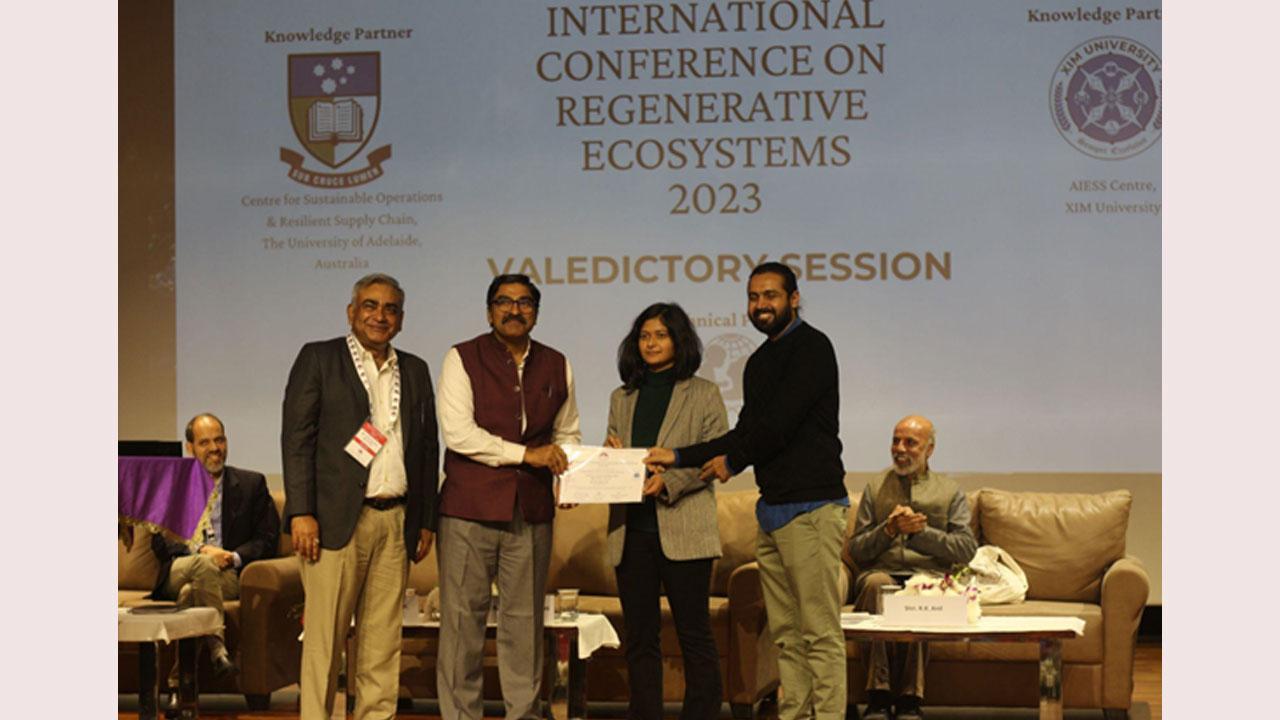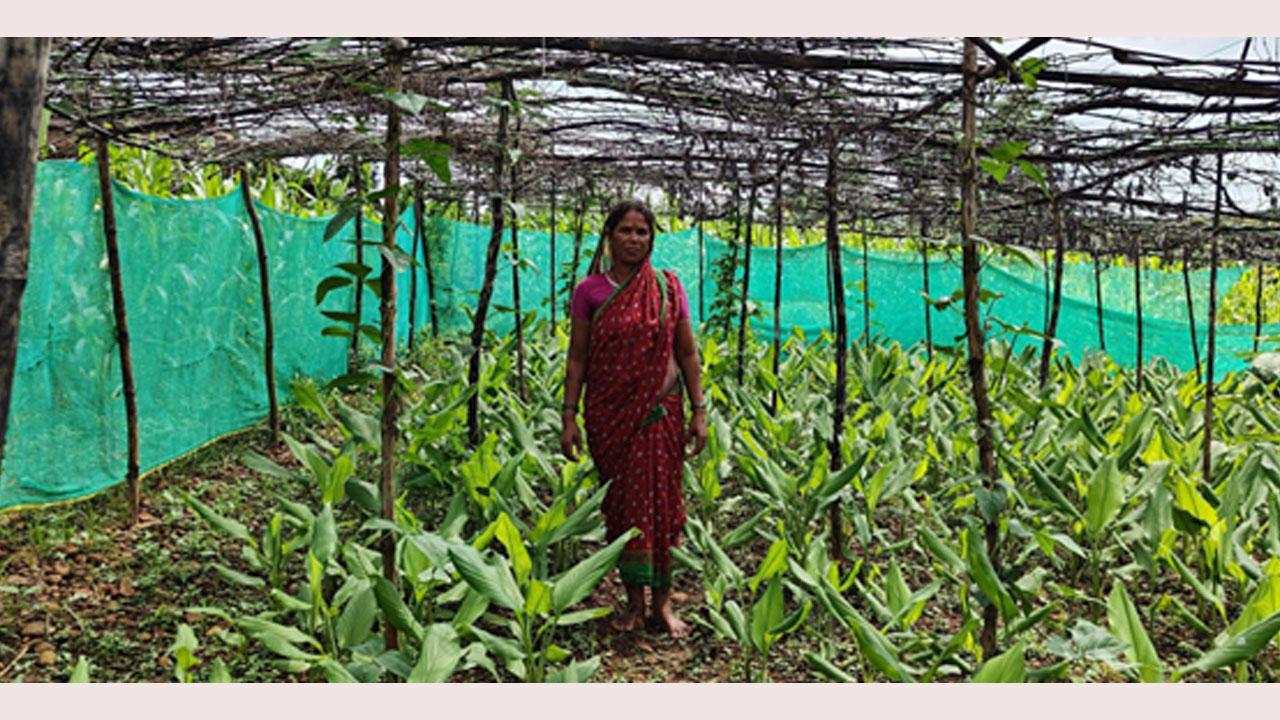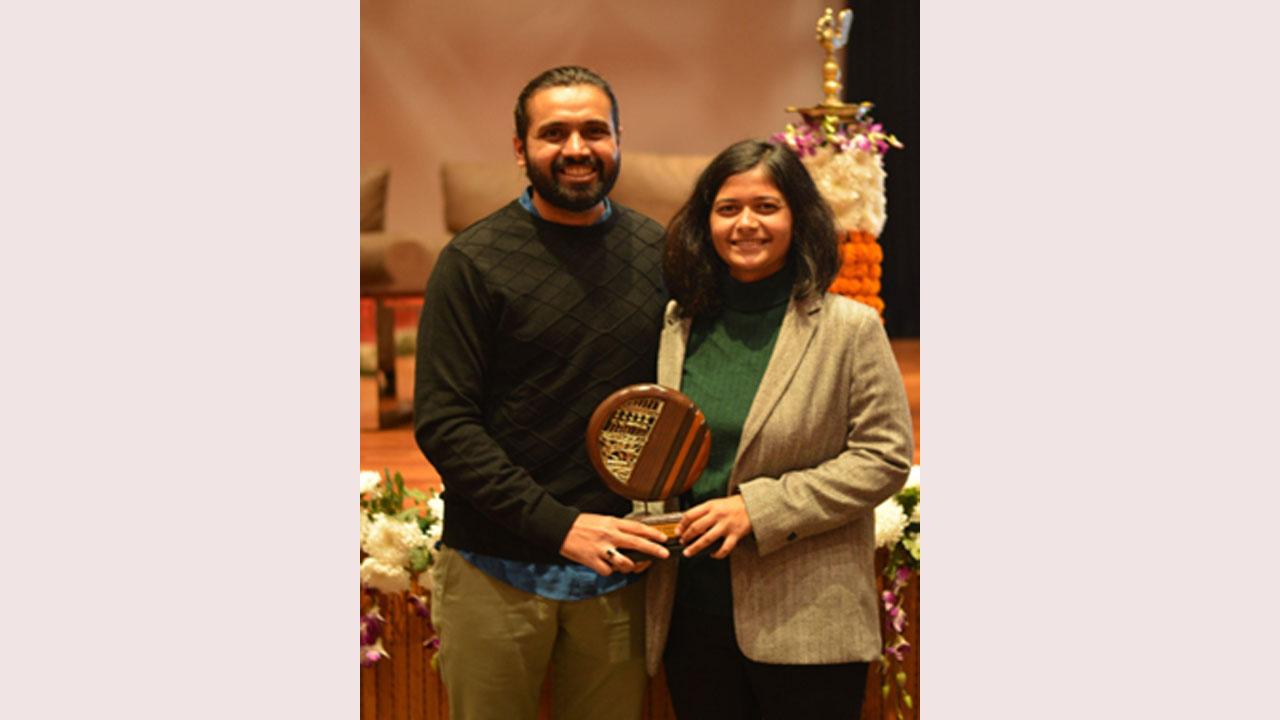The award-winning research paper addresses the challenges faced by small and marginal tribal farmers in remote regions of India.

In an innovative initiative, Ms. Shubham Jha and Mr. Omprakash Jha, recipients of the Best Paper Award at the International Conference on Regenerative Ecosystems 2023 (ICRE 23), hosted by Indian Institute of Management Raipur, are poised to take their study from an action research towards proposing its larger-scale replication in tribal India. The duo, who collaborated on the research paper titled "Empowering Tribal Agriculture through Regenerative Principles," talk of tested ways to revolutionize farming practices and uplift marginalized farming communities.
ADVERTISEMENT
The award-winning research paper addresses the challenges faced by small and marginal tribal farmers in remote regions of India, emphasizing on the need for sustainable, regenerative agricultural practices without compromising on the need for income enhancement of small landholdings. Shubham Jha, associated with the non-profit PRADAN, and Omprakash Jha, a Senior Program Manager at Rebel Foods through their paper bring a unique blend of expertise in rural and agriculture landscapes, as well as business and financial management, to the table.
Their research paper, "Empowering Tribal Agriculture through Regenerative Principles: A Multilayer Cropping Paradigm Coupled with Entrepreneurial Models of Bio-Inputs Resource Centres and Farmer Producer Groups," presents an integrated agricultural production model rooted in climate-resilient regenerative principles.

The study brings about the analysis of the Multilayer Cropping (MLC) model of vegetable cultivation piloted and replicated by PRADAN in the tribal regions of Mandla, Madhya Pradesh. Further, an exploratory study has been made to capture the viability and feasibility of building a regenerative farm ecosystem with the help of entrepreneurial models of Bio-input Resource Centres (BRCs) and Farmer Producer Groups (FPGs). At its optimal potential, the integrated system of MLCs, BRCs and FPGs is found capable of sustaining the goals of optimum land utilization and year-round agricultural productivity based on regenerative principles, across the tribal hinterland of the country. The groundbreaking aspect of their work lies in testing the potential of the farm based model which is capable of increasing farmers' income tenfold compared to traditional methods. Through rigorous testing and validation of farming techniques, the researchers have demonstrated that the cost-effective MLC model is reliable and sustainable, offering a promising avenue for transforming tribal agriculture in India. Moreover, the entrepreneurial models of BRCs and FPCs hold potential for strengthening the local economy as enablers of the mechanisms of linkages, production and processing of commodities.
In an exclusive interview, Shubham Jha who did her MA in Social Work from TISS, Mumbai expressed the duo's commitment to making a tangible impact, stating, "Our research paper is not just confined to theory; we envision a future where regenerative agriculture becomes the norm, especially in tribal regions facing challenges of scarcity, poverty, and vulnerability, and yet holding on to their intrinsic values of respecting the dignity of labor and love for nature.

Omprakash Jha, who is an IIM alumnus and Management professional added, "Strengthening and capacity building of Farmer Producer Groups as socio-economic centers of solidarity among the primary producers plays a crucial role in establishing sustainable linkages and maximizing price realization in broader markets. We envision a reality of systems where the primary producers are the key decision makers in the regenerative production ecosystem."
The paper gives validity and direction to the potential of fostering partnerships with supporting agencies, who could provide support funding and resources necessary for the successful implementation of the Multilayer Cropping system and associated entrepreneurial hubs. As their study moves from the conference stage to wider replication, the authors call for collaborative efforts from policymakers, agricultural experts, and the broader community to support the mission of empowering tribal farmers through regenerative agricultural practices. The success of this initiative could mark a significant step towards sustainable and resilient agriculture in India.
 Subscribe today by clicking the link and stay updated with the latest news!" Click here!
Subscribe today by clicking the link and stay updated with the latest news!" Click here!







